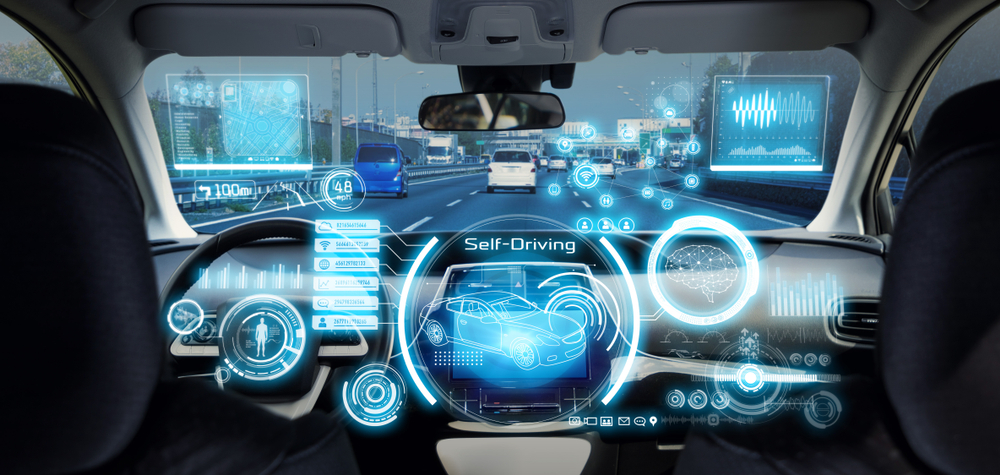“We can achieve whatever Tesla can right now.”
Xu Zhijun, rotating chairman of Huawei, one of the world’s largest telecom equipment and smartphone makers, made this confident and somehow odd statement during an interview in Beijing on October 23.
Despite stating repeatedly that Huawei “does not make cars,” Huawei’s ambition to enter the automotive industry has been an open secret in the industry for several years now. However, the plan has not materialized although Huawei established its mysterious “2012 Laboratories”. This functions as the innovation, research, and technology development arm of the company, of which the automotive business is a key component.
Smartphone giant’s self-driving dream
Huawei claimed in April that it aims to become “a digital car-oriented and new-added components provider” by enabling car original equipment manufacturers (OEM) to “build better vehicles.” This was the first time Huawei made a clear statement about its plan to enter the automotive market.
Specifically, it will focus on information and communication technology (ICT) applied to smart automobiles. These include an in-vehicle computing platform and intelligent driving sub-system solution, 4G/5G in-vehicle communication modules and network solutions, and its Huawei Cloud service for autonomous driving named Octopus.
Following this statement, Huawei set up a business unit to offer smart automobile solutions in May. It debuted its Level 4 full-stack intelligent driving solution (ADS) in September, which marks an upgrade in autonomous driving from Level 2+ to Level 4. This is one step below full automation at Level 5, where human drivers are obsolete, but still entails a large degree of vehicle autonomy. At Level 4, cars are nearly fully autonomous and can independently handle most driving situations, including complex urban driving environments. Nonetheless, a human driver should be behind the wheel to take over if necessary, although this person can rest temporarily during less complex driving situations.
Also, as part of the move to drive into the self-driving industry, Huawei has inked partnerships with many automotive companies including Audi, BYD, Beijing New Energy Automobile (also known as BAIC Group), and Changan Automobile.
In terms of business model, Huawei is looking to open its autonomous driving platform to partners, and develop various algorithms and applications based on the platform. Essentially, Huawei is fulfilling the demands from within the smart vehicles industry, Xu said.
As smart vehicles gradually replace traditional automobiles, Huawei has immense potential to become a major component supplier for all types of cars, even though it emphasizes itself as a component provider for smart vehicles.
This seems to be a great challenge for the Chinese tech giant to grow beyond its traditional stronghold in telecoms into the AI products space. In fact, Huawei’s entry into the automotive industry remained debatable within the company as recently as 2018.
A swerve under pressure
The growth of Huawei’s overall revenue has slowed down since 2017. Its carrier business, which provides telecommunications products to telecom networks around the world, was slightly dented by continuing political headwinds and its top line decreased by 1.3% in 2018, according to the company’s annual report.
Huawei founder Ren Zhengfei said in June that the company would expect annual sales revenues to fall by about USD 30 billion to around USD 100 billion after the US ban, which restricts Huawei from installing Google’s popular Android system on its devices.
“Huawei’s carrier and smart devices businesses are not enough to support the operations of such a large company, so it has to find other sectors that have larger capacities,” a former Huawei employee told 36Kr.

Xu calls China’s automotive industry, with a valuation of RMB 16 trillion (USD 2.3 trillion), as “the ground-breaking industry” of the future. He also believes that as intelligent connected electric vehicles (EVs) and autonomous driving continue to develop, “70 percent [of the big players within the industry] will not be in the traditional components sector such as car bodies and chassis.”
China is the world’s largest market for automobiles, and new energy vehicle (NEV) sales have topped the world for three consecutive years. It had sold about 872,000 NEVs as of September, 2.4 times the number of vehicles sold in the US last year, according to the China Association of Automobile Manufacturers.
The share of industry profits generated by new mobility technology including EVs, autonomous vehicles, and ride-sharing will grow from just 1% in 2017 to 40% in 2035, according to industry tracker The Boston Consulting Group (BCG).
The development of intelligent vehicles has created unprecedented opportunities for new players to enter the market. Gao Tianyao, partner at early-stage investment firm Legend Star, told 36Kr that one reason for Huawei to enter the automotive market is the market potential generated from the Artificial Intelligence of Things (AIoT) and the telecoms industry.
“Huawei will not miss such a great opportunity to seize the automotive market, which is the next generator of internet traffic,” said a market observer.
Huawei’s strengths
As a leading global ICT solutions and smart devices provider, Huawei is spreading its tentacles into the smart vehicles sector with its core technology of developing chips. “Huawei is the only company in China that can complete [an ecosystem for automobile parts],” said a staff from Chinese telecommunications company ZTE’s autonomous driving department.
He also explained that although it could be difficult for most companies in China to offer a one-stop self-driving solution, Huawei is an exception: as long as a goal is firmed up, the company will dedicate all efforts to accomplish that goal and become dominant in that sector.
Gao believes that compared with startups that possess relatively limited resources, Huawei will become a threat to traditional tier-one auto parts suppliers in and beyond China, thanks to its strengths in funding and technology.
“Other automotive and self-driving companies can’t manufacture chipsets like Huawei’s Balong 5000, which supports a broad range of 5G products including smart vehicles,” a market analyst told 36Kr. Besides Huawei, self-driving companies can only turn to foreign chipmakers such as Nvidia, which would probably result in non-market political or social risks.
“Instead of making cars, Huawei is making products that can be applied to any models,” Gao said. “However, it is facing brutal rivalry with tradition tier-one suppliers, especially after the widespread adoption of 5G networks.”
Fierce competition lies ahead
While Huawei is exploring opportunities in a trillion-dollar market, it still has to overcome many barriers when entering a market it was previously unfamiliar with.
“It usually takes us 18 months to make a smartphone motherboard, and the time for our smart automobile business to pay off will probably be in 2021 or later,” Xu said. Huawei currently does not expect its smart vehicle sector to bring in profits. “Products will naturally make profits after they become competitive.”
Other tech giants such as Alibaba, Apple, and Google are also eyeing the smart auto sector.
Alibaba and Huawei have growing numbers of overlapping products in the field of computational intelligence, according to a report released by China International Capital Corporation (CICC), a Chinese investment bank. It remains a powerful rival to Huawei as it starts to enter the smart car business by partnering with major automakers.
International players have joined the game, too. Apple started its self-driving project dubbed Project Titan early in 2014, which was later scaled back to software development. Waymo, the self-driving division of Google’s parent company Alphabet, is widely seen as the autonomous vehicle industry leader with some of the most advanced technologies.
The confrontation between Huawei and traditional chipmakers such as Qualcomm, Bosch, Intel, and Nvidia is one factor making the competition more intense.

US chipmaker Qualcomm has launched the third generation of its AI-centric platform called Snapdragon Automotive Cockpit Platform for building in-car experiences in 2018, while Huawei’s similar products are still at the conceptual stage. Bosch, the world’s biggest car parts supplier, announced in October its new semiconductor chips to prevent electrocution from an electric vehicle after an accident.
While the sector is fully packed with numerous players, Xu believes Huawei has no real competitors in the niche market of smart vehicle components. “You can’t find components of our kind on the market,” he said.
It is unclear whether Huawei, aiming to gain a foothold in the automotive market, will soon become the industry leader. But one thing is certain: only sectors like the smart auto business, an industry with high potential for expansion, will sustain Huawei’s desire for higher growth rates.
The original article was written by Auto-time of 36Kr, KrASIA’s parent company.
Contact writer at [email protected]
